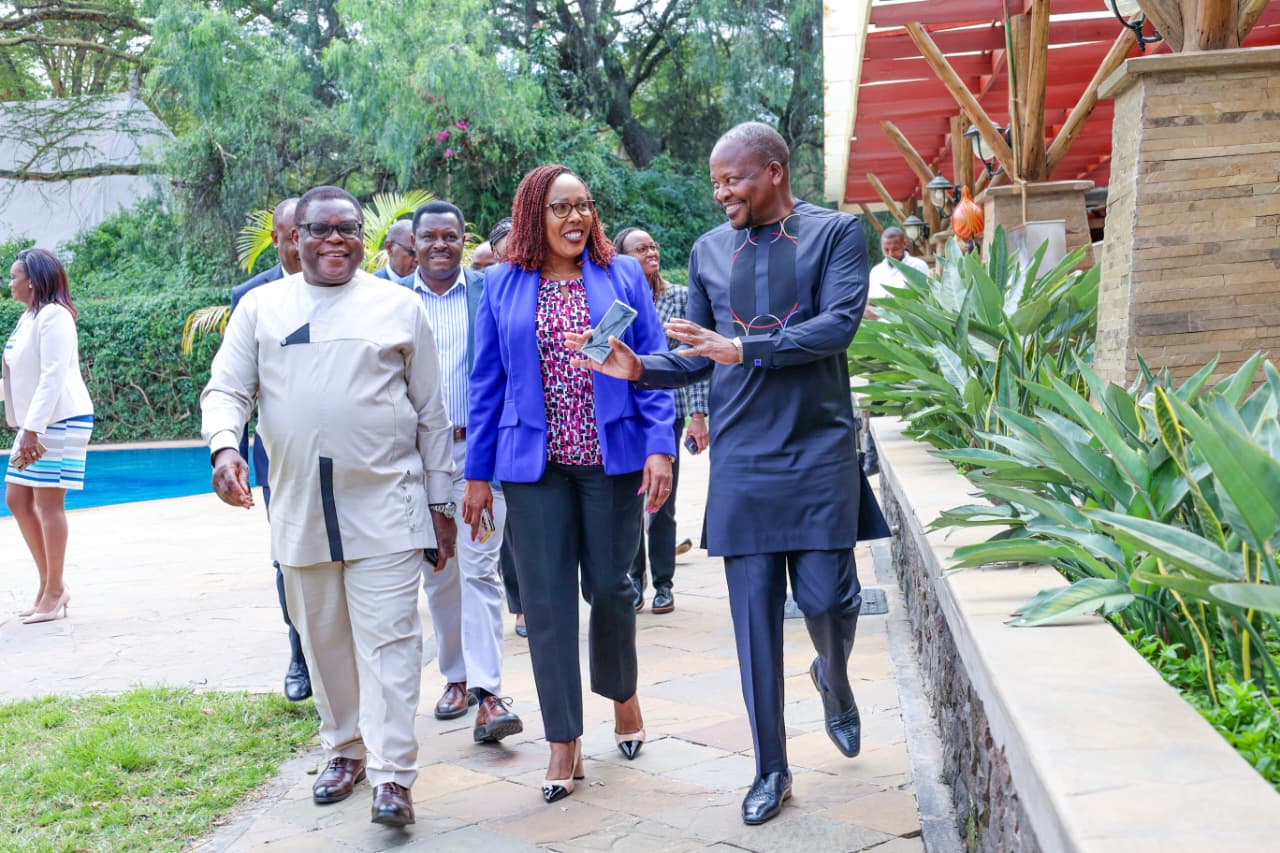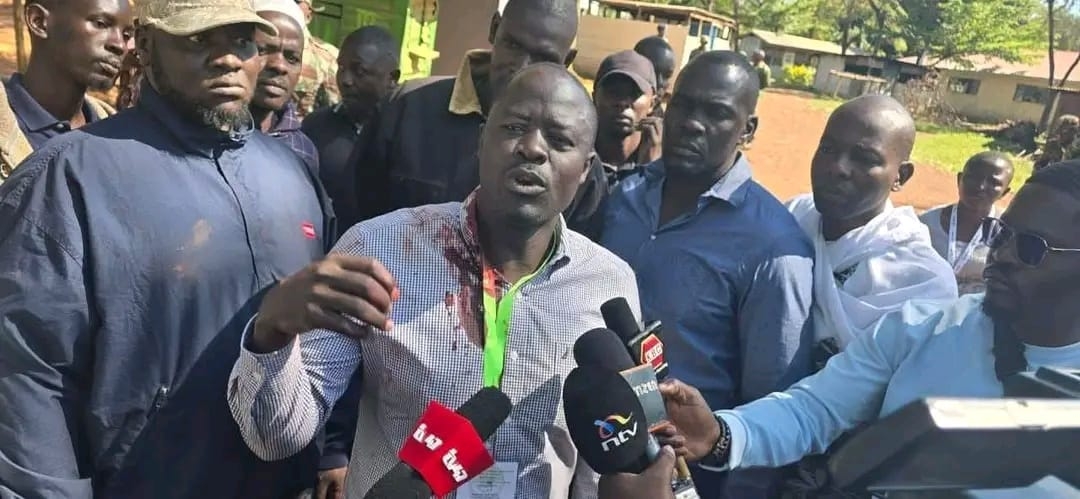
 Bungoman Governor Ken Lusaka (left), COG CEO Mary Mwiti and Agriculture Cabinet Secretary Mutahi Kagwe during the conference in Naivasha on November 27, 2025/COURTESY
Bungoman Governor Ken Lusaka (left), COG CEO Mary Mwiti and Agriculture Cabinet Secretary Mutahi Kagwe during the conference in Naivasha on November 27, 2025/COURTESYAgriculture and Livestock Development Cabinet Secretary Mutahi Kagwe has called on counties and private sector players to “break out of routine, abandon comfort zones, and rethink agriculture from the ground up” as he officially launched the two-day Intergovernmental Agriculture Forum (IGAF) 2025 in Naivasha.
The high-level forum brought together county leaders, including Council of Governors Chair Ahmed Abdullahi, Vice Chair Muthomi Njuki, and Chair of the CoG Agriculture Committee Governor Ken Lusaka, alongside PS Jonathan Mueke, governors from ASAL regions, CECs from all 47 counties, and top private sector players.
CS Kagwe opened the forum with a reminder that IGAF is not merely ceremonial, but a constitutional obligation to strengthen intergovernmental cooperation and position counties as the frontline implementers of Kenya’s food security agenda.
“We are here not just to discuss agriculture. We are fulfilling a constitutional mandate. We must protect counties. We must work in tandem. We cannot do things normally and expect different results,” Kagwe said.
He noted that President William Ruto has issued clear directives for agricultural transformation and urged counties to translate policy into tangible outcomes, including food security, job creation, modern value chains, and market-ready production.
CS Kagwe also directed a strong message to the private sector, emphasising that the government alone cannot carry Kenya’s agricultural burden.
“Unless and until the private sector is fully enthused and joins agriculture, we cannot achieve results. The government cannot endlessly hire and hire or provide more and more money. The vacuum must be filled by the private sector. That is where success will come from,” he said, urging counties to create investment-friendly environments that attract capital, technology, and markets.
Challenging conventional thinking, Kagwe questioned Kenya’s persistent production deficits.
“Let us ask ourselves: How can India—with over a billion people—and the US, with more than 300 million, export grain to Kenya? How can Egypt, a desert country, grow enough food? Let us not point fingers. Let us think. Let us innovate,” he said.
Kagwe stressed that counties must take responsibility for managing climate shocks, rangelands, and livestock resilience, supported by national strategies. He highlighted the urgent need to address shrinking soil fertility.
“Land will not increase. Yet we must feed ourselves and still export. We must address soil health urgently. Fertiliser subsidy must be crop-specific and soil-specific. Seeds must be right for the right regions,” he said, advocating for technology-driven soil testing, improved fertiliser matching, and certified seed adoption.
He further warned of the need to rebuild Kenya’s agricultural workforce.
“Technology is what will change agriculture. But our officers and graduates must be trained for that future. In five years, 50% of the Ministry of Agriculture staff will retire. KALRO does not have enough scientists. We must rebuild our human capital now,” Kagwe said, calling for curriculum reforms, modern extension systems, and recruitment of young scientists and technicians.
















